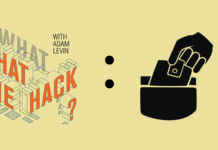
Valentine’s Day can certainly be stressful. Whether you’re at a loss for what to buy your love or you’re the lamenting the lack of one, you also have to watch out for scammers this time of year.
“Scammers play on emotion … and romance is certainly a strong emotion,” the Better Business Bureau said in a recent scam alert. “Any time people are vulnerable, scammers will find opportunity.”
Here are a few ways to avoid getting hit by a fraudster’s arrow, culled from the BBB’s past and present Valentine’s Day scam warnings.
Research Merchants & Delivery Services
Some merchants have better reputations than others when it comes to customer service, quality of goods and timely delivery, so you may want to do a little a research before you decide where to get your flowers, jewelry or other gifts this year. And you should be particularly careful if you plan to have your goods delivered. Cyber-crooks have been known to take advantage of the uptick in flower orders particularly by creating phony delivery emails to trick unwitting customers into turning over their personal and payment information. You can check to see if a business is accredited or has garnered a lot of complaints by looking it up on the BBB’s website and/or online review sites.
Examine Gift Cards
Gifts cards are a popular Valentine’s Day present, but they’re also a favorite among scammers. You can ensure the gift cards you buy haven’t been hijacked by purchasing ones that aren’t kept on easily accessible racks or require clerks to load the money on at the register. If you do buy a gift card that’s in plain sight, check to make sure the protective stickers have not been removed and the unique PIN on the card has not been exposed, the BBB said.
Vet Your Date
Scammers have been known to create fake profiles on online dating sites to steal lovelorn consumers’ identities, financial information or cash. According to the BBB, you should consider it a red flag if your suitor claims to be from the U.S. but is traveling overseas, professes love within moments of meeting you online, plans to visit but keeps canceling due to some emergency or wants to leave the dating site immediately to chat by phone, outside messaging service or email. You also shouldn’t wire any money or turn over credit card information for a chance to finally meet.
“This might sound like a small price to pay for Mr. or Ms. Right, but is an easy way to lose the money sent,” the BBB said. “Unfortunately, the anonymity of the internet makes it easy for con artists to use these sites to meet potential victims.”
Be Wary of E-Cards & Emails
Sure, some of your friends like to send love notes and gifts this time of year, but it could just as easily be a scammer on the other end of that e-card. Fake greeting card sites or phony delivery confirmation emails are yet another way fraudsters glean your personal information either directly or by tricking you into downloading malware onto your computer. The BBB said you can avoid falling victim to a phishing scheme by only opening emails, links and attachments from people you know, enhancing spam filters, refraining from clicking on links in unsolicited correspondence and contacting any merchant directly by phone if you get an email saying there’s a problem with a delivery.
Remember, if you do have reason to believe you were scammer-struck, you should monitor your financial accounts — and your credit. Sudden drops in credit scores or mysterious line items on credit reports are signs your identity has been stolen.You can keep an eye out for identity theft by pulling your credit reports for free each year at AnnualCreditReport.com and viewing your credit scores for free each month on Credit.com.
This article originally appeared on Credit.com and was written by Jeanine Skowronski.










